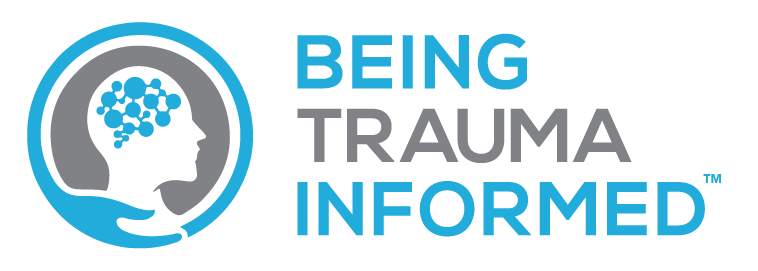FAQ
frequent questions
What does Being Trauma Informed mean?
Usually you hear the phrase “trauma informed care” or “practice trauma informed.” We chose the phrase Being Trauma Informed, because from our perspective it’s important to apply the science to every moment of our lives, beyond just our professional lives. This means we take the same science based approach to our own lives as we do the lives of those we help or even simply interact with professionally or in our personal lives. The science of trauma starts with recognizing that it’s not possible to know whether someone has been or is being affected by trauma in any given moment. The simplicity of that reality suggests that it would be wise to take the principles of what it means to be trauma informed home with us. Our families, friends, and even total strangers can benefit from the concrete ways the science suggests we interact with others. Think of Being Trauma Informed as a comprehensive way to approach life – sounds grand and maybe even a bit over the top, but the science suggests it’s absolutely where we should head if we are working with or have experienced trauma.
Why is being trauma informed important?
Over the last twenty years or so, research on how the brain responds to threat and how trauma affects this response has exploded with interest from first scientist and then many of us that work with trauma. Understanding this science helps us understand they why behind how an individual may respond to a threat (either physical or psychological – more on that fascinating science later) as well as what the impact of that response may be for the individual moving forward. This long term impact of trauma can affect communication, impulse control, the ability to regulate emotion, and many other aspects of an individual’s life. Without understanding how the brain (and therefore the individual) is affected by trauma, we can easily misinterpret behavior and emotion. These misinterpretations can lead to misunderstanding, which leads to missed opportunities to increase our effectiveness.
What does being trauma informed look like?
Some of being trauma informed can be seen in the form of how you interact with others and the way you approach your own life. Other aspects of being trauma informed are ways of making sense of the world that may not be easily seen, except for the fact that the way you make sense of the world affects how you treat ourselves and others. Concretely, it may look like changing the way you go about understanding “what happened” by starting to focus less on what happened and more on what the individual went through or experienced. It may look like changing the facial expressions, posture, and tone of voice you use when you communicate with others, or it may look like arranging your office differently, all based on the science!
How can Being Trauma Informed make me more effective?
The first step to Being Trauma Informed is to understand the science. Our expertise is in making the science accessible to those without a science background. We use real life examples that most of us can relate to, give you the chance to relate the science to your own life, and provide “ah ha” or lightbulb moments for folks so that most often reaction we get to our trainings is “I get it…the science actually makes sense now.” From there, we help you connect the dots to how the science can impact the way you work with people professionally, personally, and yes, how you treat yourself. Again, all based on the science. How cool is that?

